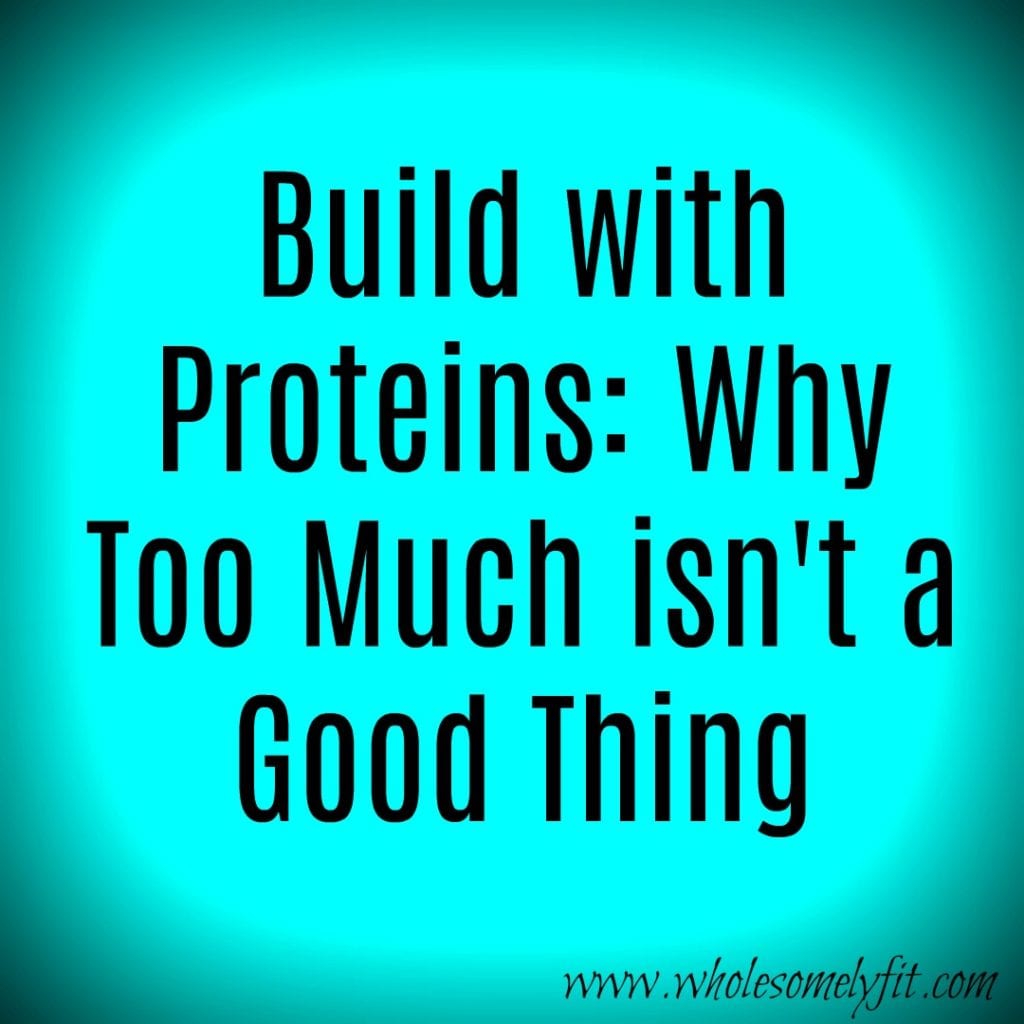Happy Monday Ya’ll!!
I decided I needed to include an additional post on protein to cover some more bases. We went over in our previous post some great protein sources for all diets and what protein does in our body, but I also realize that there are some health risks with an increased amount of protein. I wanted to explain further.
Here’s a recap of the past posts if you missed them:
- The Good & Bad on Carbohydrates: Which carbs you should be consuming, and those you should avoid or limit
- Why High Carbohydrate Diets aren’t Necessary for Endurance Events: The theory that carbo-loading is a must if doing endurance events, is now replaced with new research on the benefits of high fat diets.
- The Skinny on Fats: Good Fats vs. Bad Fats: An outline of the different types of fats, and why they are unhealthy or healthy.
- The Skinny on Fats: 7 Best Fat Sources & Why Fats Help with Weight Loss: My favorite & best food sources high in EFA’s and healthy fat that can help with weight loss or maintaining weight.
- Build with Proteins: Great protein sources for vegetarian, vegans and meat eaters, as well as the importance of protein.
There are risks to a high protein diet. Obviously, the choice of protein consumed plays a role. An individual can be consuming a high protein diet from lean meats, plant based proteins and healthy dairy products, or they are choosing protein sources that are high in sodium and saturated fat. You know from lasts week posts there are some healthier choices for protein.
What are some risks associated with high protein diets? Well I am glad you asked, lets take a look:
- Dehydration: High protein diets require 7x more water from metabolism than carbohydrates or fats, thus high protein diets can lead to dehydration. 7x is a large amount, and on average we are a very dehydrated people anyways.
- High Cholesterol: If the protein sources are high in saturated fat, cholesterol levels are raised, especially when consuming them regularly, which can increase one’s risk of heart disease.
- Kidney Problems: High protein diets put added strain on the liver and kidneys and can be detrimental to those with kidney or liver disease.
- Skin and Colon Cancer: Excess protein can be degraded into cresol and phenols that promote skin and colon cancer.
- Loss of Calcium: High protein diets are highly acidic, especially if there isn’t a variety of fruits and vegetables consumed to offset the acidity. The body has a pH, which we want to be more alkaline or neutral. Certain foods are either acidic or alkaline forming in our bodies. Protein sources such as dairy and meats are acid forming. Too much acid in the body, causes calcium to be leeched from the bones.
- Osteoporosis: High protein diets are acidic, causing calcium to be leeched from our bones, which may lead to bone diseases such as osteoporosis (see above).
- Leaky Gut Syndrome: Proteins absorbed before they are broken down into amino acids can contribute to leaky gut syndrome (caused by excess proteins, remember excess amino acids aren’t stored as protein). The absorbed protein is treated like a foreign invader, thus the immune system attacks it leading to allergic reactions (sneezing, asthma & skin reactions) and can cause diarrhea, dizziness, vomiting and headaches.
- Heart Disease: Because animal protein is high in methionine and low in B6, an elevation in homocysteine levels occurs, which can contribute to heart disease (I’ll explain further later in this post).
- Candidiasis: Remember from my previous post, that excess protein is converted to sugar and then fat? Well, increased blood sugar levels can also feed pathogenic bacteria and yeast, such as Candida albicans (candidiasis) and can fuel cancer cell growth.
Homocysteine: This is a toxic amino acid created by the body as an intermediate compound when methionine-containing foods are digested (meat, fish & dairy). If homocysteine is not metabolized properly it can become a major threat to health. In excess it can promote oxidation of lipids, cause clotting, increase free radical oxidative damage to blood vessel walls, increase blood pressure, and may cause depression. It is also toxic to the liver, joints, adrenals and nerves.
In the popular book the China Study, research shows that the populations with lower protein diets had lower rates of osteoporosis and hip fractures, compared to the populations with high protein diets (America being one of those higher protein diet populations).
The provided resources are given for further reading.
Sources:
Dr. Mercola, “The Very Real Risks of Consuming too Much Protein.” September 2014. http://articles.mercola.com/sites/articles/archive/2014/09/03/too-much-protein.aspx
T. Colin Campbell. “The China Study”. January 2005. BenBalla Books. Dallas, TX
Physicians Committee for Responsible Medicine. Analysis of Health Problems Associated with High Protein, High Fat Carbohydrate Restricted Diets. May 2004. http://www.pcrm.org/health/reports/analysis-of-health-problems-associated-with-high
Until Next Time Be Whole and Be fit
